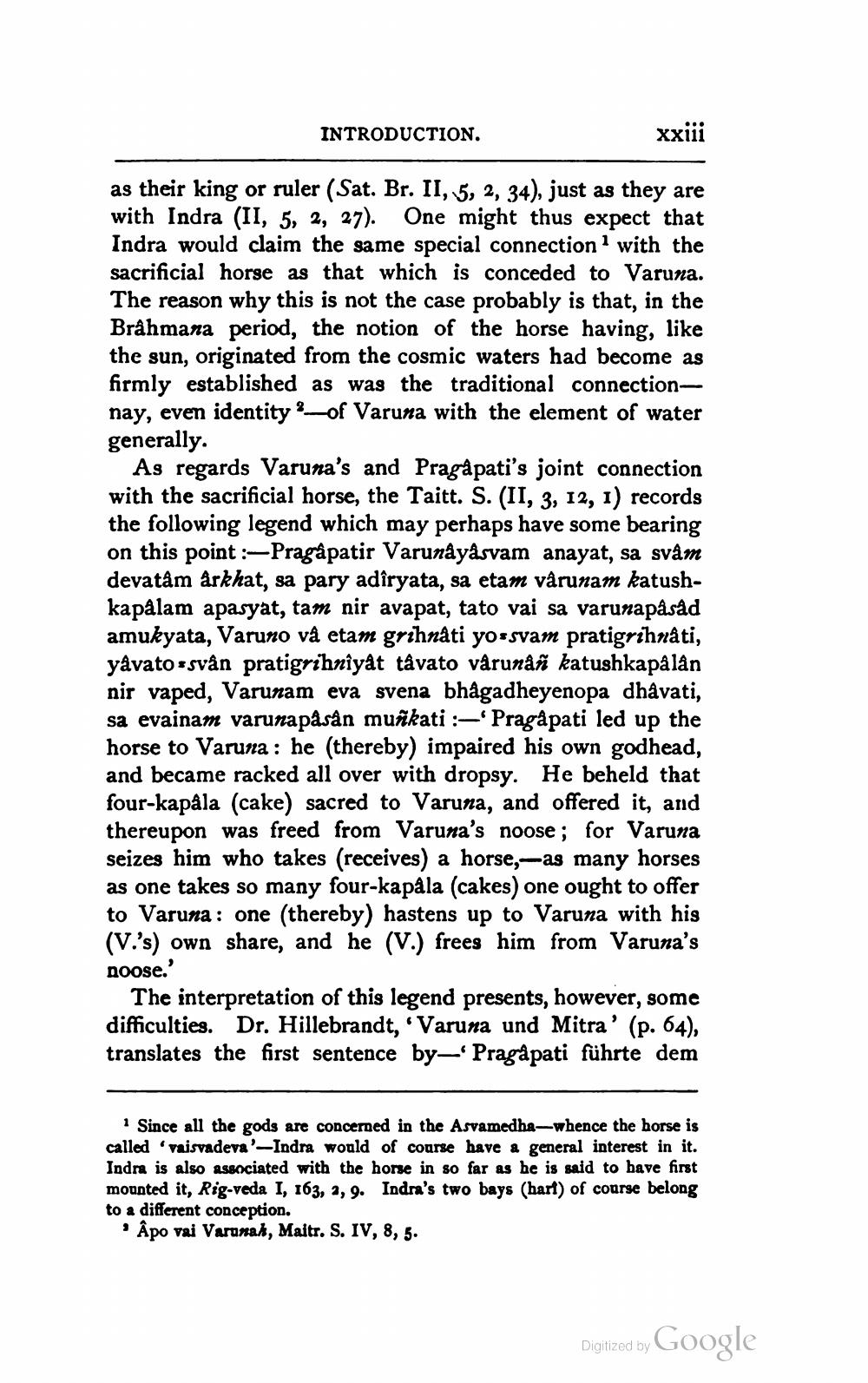________________
INTRODUCTION.
xxiii
as their king or ruler (Sat. Br. II, 5, 2, 34), just as they are with Indra (II, 5, 2, 27). One might thus expect that Indra would claim the same special connection1 with the sacrificial horse as that which is conceded to Varuna. The reason why this is not the case probably is that, in the Brahmana period, the notion of the horse having, like the sun, originated from the cosmic waters had become as firmly established as was the traditional connectionnay, even identity of Varuna with the element of water
generally.
As regards Varuna's and Pragâpati's joint connection with the sacrificial horse, the Taitt. S. (II, 3, 12, 1) records the following legend which may perhaps have some bearing on this point:-Pragâpatir Varunâyâsvam anayat, sa svâm devatâm ârkhat, sa pary adîryata, sa etam vârunam katushkapalam apasyat, tam nir avapat, tato vai sa varunapâsâd amukyata, Varuno vâ etam grihnâti yo-svam pratigrihnâti, yavato svân pratigrihnîyât tâvato vârunâñ katushkapâlân nir vaped, Varunam eva svena bhagadheyenopa dhâvati, sa evainam varunapâsân muñkati :-' Pragâpati led up the horse to Varuna: he (thereby) impaired his own godhead, and became racked all over with dropsy. He beheld that four-kapala (cake) sacred to Varuna, and offered it, and thereupon was freed from Varuna's noose; for Varuna seizes him who takes (receives) a horse,-as many horses as one takes so many four-kapâla (cakes) one ought to offer to Varuna: one (thereby) hastens up to Varuna with his (V.'s) own share, and he (V.) frees him from Varuna's noose.'
The interpretation of this legend presents, however, some difficulties. Dr. Hillebrandt, 'Varuna und Mitra' (p. 64), translates the first sentence by-'Pragâpati führte dem
1 Since all the gods are concerned in the Asvamedha-whence the horse is called 'vaisvadeva'-Indra would of course have a general interest in it. Indra is also associated with the horse in so far as he is said to have first mounted it, Rig-veda I, 163, 2, 9. Indra's two bays (hart) of course belong to a different conception.
Âpo vai Varunak, Maitr. S. IV, 8, 5.
Digitized by
Google




